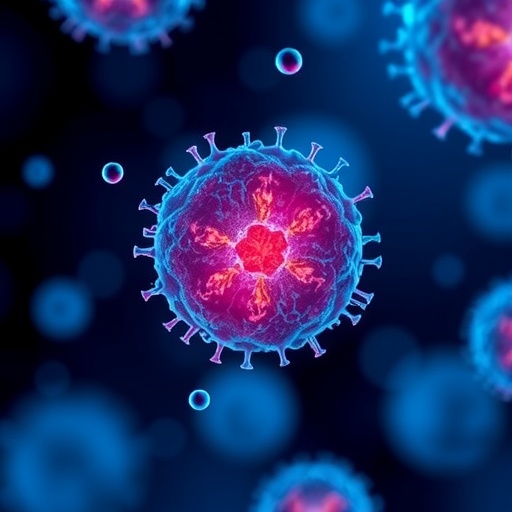In recent years, the field of oncology has witnessed groundbreaking advancements in the realm of immunotherapy, particularly through the application of adoptive cell therapy. Central to this innovative approach is the utilization of tumour-infiltrating lymphocytes (TILs), a strategy that has garnered significant attention for its potential to enhance immune-based therapeutic modalities. The recent FDA approval of TIL therapy for treating advanced melanoma in 2024 has marked a pivotal moment for the oncology landscape. This milestone underscores not only the efficacy of TILs in combating specific malignancies but also sets a precedent for exploring their application in other cancer types, including genitourinary cancers.
Historically, clinical trials for advanced renal-cell carcinoma demonstrated limited success with TIL therapies. Observations from these early trials have, however, illuminated critical challenges and knowledge gaps that researchers have endeavored to address in subsequent investigations. Recent strides in the method of TIL cultivation, manipulation procedures, and associated preparative regimens have revolutionized the way TILs are utilized. Importantly, the advent of immune checkpoint inhibitors in tandem with TIL therapy has spurred renewed optimism in the potential of this treatment combination, fostering discussions around the re-evaluation of TIL therapy in treating genitourinary malignancies.
Through meticulous refinement in TIL generation and optimized manufacturing processes, the operational framework around TIL therapy has advanced remarkably. Enhanced methodologies have been instrumental in not only increasing the yield of TILs but also improving their functional potency upon reinfusion into patients. Such advancements are crucial as they directly correlate with improved therapeutic outcomes, a factor of paramount importance for patients grappling with advanced stages of cancer. As the complexities of TIL therapy are unraveled, clinicians and researchers are now better positioned to strategize interventions that maximize patient response rates.
In the current context, the landscape surrounding TIL therapy is multifaceted, brimming with potential yet fraught with barriers that warrant careful consideration. Among the most significant barriers is the inherent variability in patient response to TIL therapy, influenced by a myriad of factors, including tumor microenvironment and underlying genetic mutations. To address this variability, researchers are investing in genomic profiling and personalized medicine approaches. The goal is to develop tailored TIL therapies that are custom-fit to the unique profile of each patient and their cancer type.
Further compounding the complexity within the TIL framework is the necessity for stringent regulatory oversight. As new manufacturing technologies emerge, they often require rigorous validation to ensure safety and efficacy before being integrated into clinical practice. This regulatory landscape can inadvertently slow the adoption of innovative therapies, presenting a challenge that stakeholders in the oncology field must navigate. However, recent advocacy for accelerated pathways and streamlined processes reflects a growing consensus on the importance of bringing effective treatments to patients without unnecessary delays.
Nonetheless, the clinical viability of TIL therapy is boundless, particularly when one considers the innovative combination strategies currently being explored. Integrating TILs with other immunotherapeutics—such as monoclonal antibodies that target immune checkpoints—presents an opportunity to synergistically enhance anti-tumor responses. Trials investigating such combinations are underway, aiming to identify optimal regimens that leverage the dual mechanisms of TILs and checkpoint blockade.
Moreover, advancements in the understanding of the immune landscape within tumors have illuminated pathways that could be exploited for even greater efficacy. Understanding how TILs interact with the tumor milieu can provide insights into modifying TIL therapy to overcome resistance mechanisms employed by malignant cells. By harnessing this knowledge, researchers are poised to develop more robust TIL therapies that effectively infiltrate tumors and elicit a formidable immune response.
The expansion of clinical trials dedicated to TIL therapy in genitourinary cancers reflects the scientific community’s commitment to addressing unmet medical needs. As these trials unfold, they will not only contribute crucial data to the growing body of evidence supporting TIL therapy but also foster collaboration among academic institutions, biotech companies, and regulatory bodies. This collaborative spirit is essential for accelerating the pace of innovation and ensuring that promising therapies transition seamlessly from bench to bedside.
Looking ahead, the prospects for TIL therapy appear increasingly bright, underpinned by a persistent pursuit of knowledge and innovation. The ongoing refinement of TIL generation processes, coupled with integrative treatment strategies, holds the key to unlocking the full potential of TILs in treating advanced genitourinary cancers. As researchers continue to unravel the complexities of the immune response in cancer, the era of personalized immunotherapy is not a distant reality but an imminent future.
In summary, the evolution of TIL therapy presents a narrative of hope and resilience within the field of oncology. Through a concerted effort to overcome historical barriers and harness the power of our immune systems, TIL therapy represents a transformative approach in the fight against cancer. With ongoing research and clinical trials paving the way for its application in genitourinary cancers, the medical community remains optimistic about the potential of TIL therapy to revolutionize treatment paradigms for patients facing some of the most challenging malignancies.
As we stand on the cusp of this new frontier, the synergy between innovative research and clinical application will undoubtedly shape the future of cancer immunotherapy. Patients with advanced genitourinary cancers deserve access to the latest advancements in treatment, and TIL therapy, fortified by cutting-edge science and technology, promises to deliver just that.
Subject of Research: Tumour-infiltrating lymphocyte therapy for advanced genitourinary cancers.
Article Title: The opportunities and barriers for developing tumour-infiltrating lymphocyte therapy for patients with advanced genitourinary cancers.
Article References:
Potez, M., Roman Souza, G., Spiess, P.E. et al. The opportunities and barriers for developing tumour-infiltrating lymphocyte therapy for patients with advanced genitourinary cancers. Nat Rev Urol (2025). https://doi.org/10.1038/s41585-025-01088-6
Image Credits: AI Generated
DOI:
Keywords: Tumour-infiltrating lymphocytes, adoptive cell therapy, immunotherapy, genitourinary cancers, checkpoint inhibitors, cancer treatment.




